The history of Liverpool FC isn’t only about football—it’s a saga filled with triumphs, tragedies, and unforgettable moments. Founded in 1892, Liverpool Football Club has risen to become a successful team in world football. With a passionate base of Liverpool fans, the club conquered many domestic and international trophies, dominating the Premier League, FA Cup, League Cup, and UEFA Champions League.
For people who love football, Liverpool FC represents more than just a club – it’s a symbol of glory and tradition. From amazing European nights to domestic battles, Liverpool’s success has shaped English football for decades.
So, come with me, and let’s dive into Liverpool’s history and revisit moments that made this club so traditional in England and the world!
Table of Contents
- History of Liverpool FC: Epic History of One of the Greatest Clubs
- Foundation and Early Years of Liverpool Football Club
- Rise to Glory: The Golden Eras
- Iconic Players: Legends of Liverpool FC
- Tragedies in Liverpool Games
- European Triumphs
- Rebuilding and Premier League Era
- Become a Giant in Football with FootballTeam Game
Foundation and Early Years of Liverpool Football Club
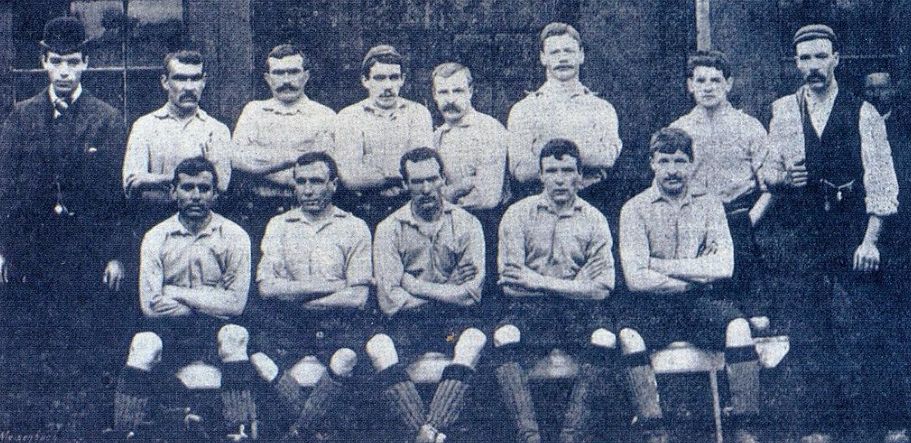
1892 Liverpool Squad via Wikipedia
Liverpool FC’s history began in the heart of Merseyside with a turnaround that shaped the destiny of English football. In 1892, John Houlding, a local businessman and brewer, found himself in disagreement with the board of Everton FC, the club that played at Anfield Stadium—a ground Houlding owned. The dispute revolved around rising rent prices, leading Everton to leave Anfield and relocate to Goodison Park.
With an empty stadium and no team to fill it, Houlding made a decision – to establish his own club. On March 15, 1892, Liverpool Football Club was officially founded. Initially, the club was named Everton Athletic, but the Football League rejected the name due to its similarity to Everton FC. Consequently, the club adopted the name Liverpool FC, symbolizing a fresh start and a new identity for the city’s second major football club.
Early Matches and Lancashire League
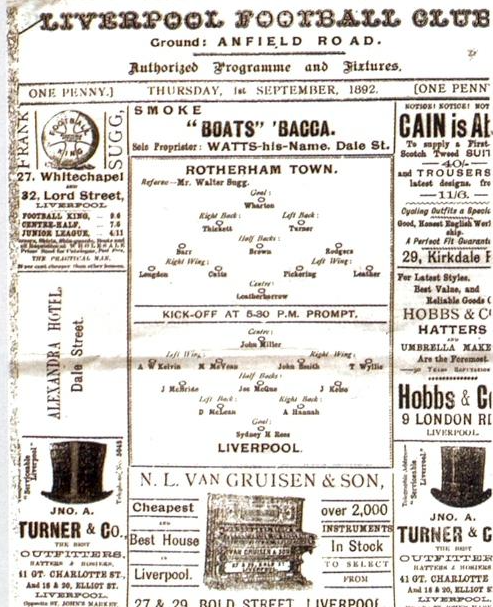
Newspaper of Liverpool’s first game in 1892 via LFC History
Liverpool’s first match took place on September 1, 1892, a friendly game against Rotherham Town. Liverpool won the game 7-1 against Rotherham, which gave a sign that the club would soon dominate the local and national football scene. The entire starting lineup for the first match consisted of Scottish players, earning them the nickname the “Team of the Macs”.
Liverpool showed competitive football in the Lancashire League during the 1892/93 season. Under Willian Barclay’s and John McKenna’s management, Liverpool found dominance, winning the Lancashire League title in their debut season. This early triumph opened paths for Liverpool’s entry into the Second Division of the Football League in 1893.
Climbing the Ranks
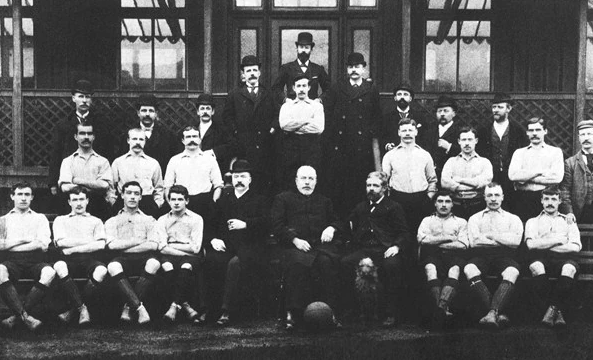
1893/94 Liverpool squad via Liverpool FC Wiki
Liverpool wasted no time making an impact in the Football League. In the 1893/94 season, the club won the Second Division without losing a single match, earning promotion to the First Division through a play-off victory over Newton Heath (the club that would later become Manchester United). This early success demonstrated Liverpool’s ambition and provided a base for what would become one of the most successful British clubs in the world.
First Division Title
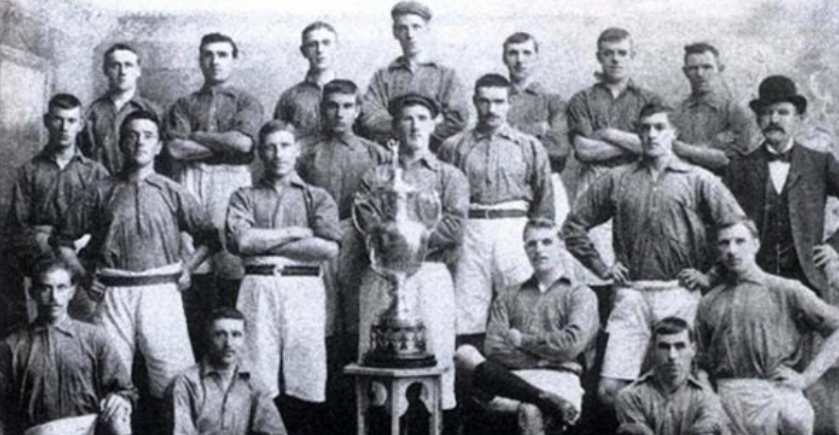
1901 First Division title via This Is Anfield
Liverpool’s first major triumph came in 1901 when the club secured its First Division title. Guided by manager Tom Watson, Liverpool’s victory marked the beginning of their rise to national success. The club claimed its second league title in 1906, reaffirming its status as a force in English football.
During these early years, Liverpool created a reputation driven by passionate Liverpool supporters who filled Anfield Stadium on matchdays. The club’s early achievements reflected the players’ willpower and a growing sense of identity with the club.
Anfield as a Fortress
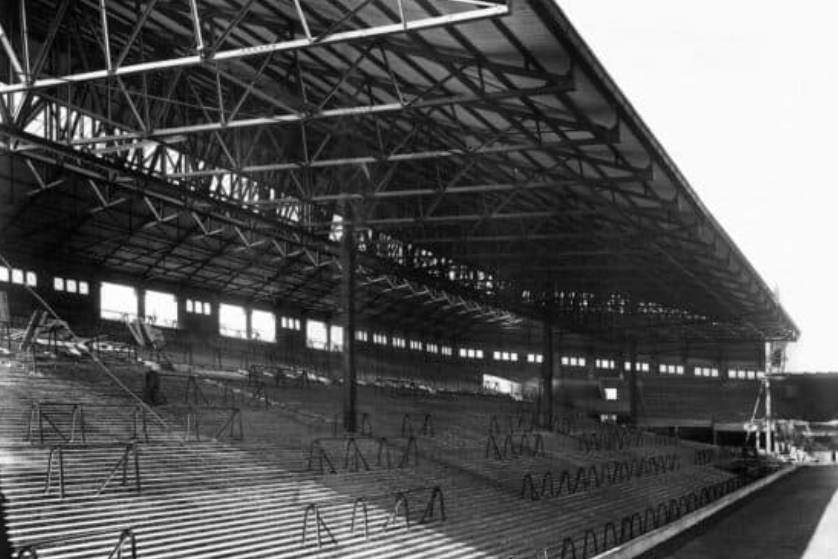
The Kop in 1906 via This is Anfield
As Liverpool FC grew, so did the size of Anfield Stadium. Designed as a modest ground, Anfield underwent significant expansions to accommodate the crowds. In the early 1900s, The Kop was born – a legendary stand that would become one of the most iconic symbols in European football.
Named after the Battle of Spion Kop during the Boer War, the stand became synonymous with passionate Liverpool fans and amazing atmospheres.
The early years of Liverpool Football Club showed that they were searching for success. From the vision of John Houlding to the first league title, these formative decades marked the beginning of a legacy that would grow to shape English and European football for over a century.
Rise to Glory: The Golden Eras
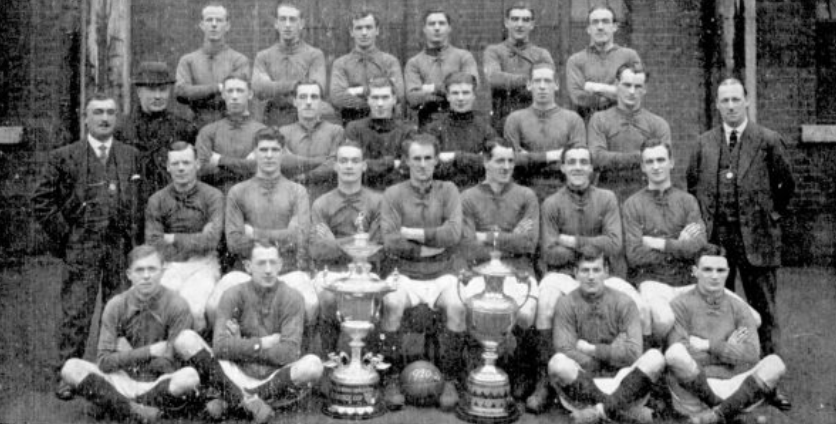
1921/22 Liverpool Squad via This Is Anfield
The history of Liverpool FC is defined by golden eras, during which the club dominated English football and triumphed on the European stage, cementing its place as one of the most successful British teams. These remarkable periods are characterized by legendary managers, iconic players, and unforgettable moments that have shaped Liverpool into one of the greatest football clubs in the world.
Bill Shankly Revolution (1959-1974)
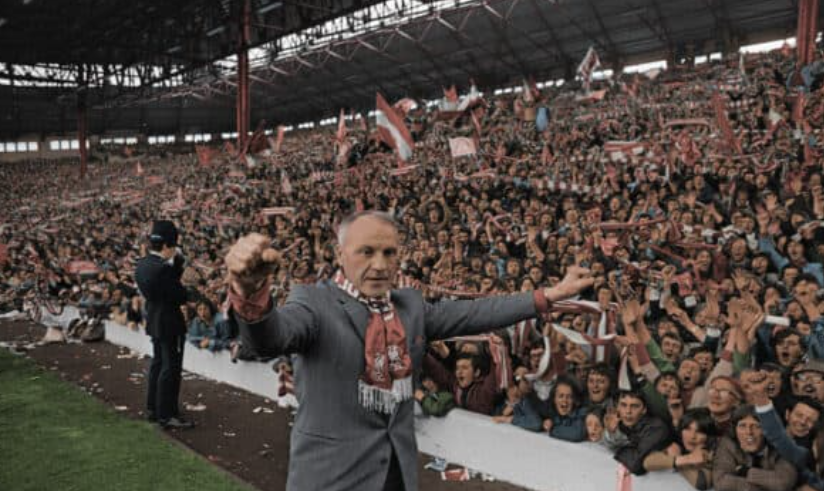
Bill Shankly as Liverpool coach via This Is Anfield
No discussion of Liverpool’s success can begin without mentioning Bill Shankly. When Shankly arrived at Anfield in 1959, the club was in the Second Division, far from the powerhouse it would soon become. Shankly’s arrival marked the beginning of a complete change – not just the squad, but the club’s philosophy.
Shankly disassembled the existing team and built a new one, focusing on young and talented players ready to fight for the Liverpool shirt. His famous “Boot Room” philosophy, involving assistant coaches like Bob Paisley, Joe Fagan, and Reuben Bennett, created a legacy of promotion and brilliance.
In 1962, Shankly led Liverpool to promotion back to the First Division, and in 1964, Liverpool secured its first league title in 17 years. This was just the beginning. Under Shankly, Liverpool won three First Division titles (63/64, 65/66 and 72/73), two FA Cups (64/65 and 73/74), and their first UEFA Cup in the 1972/73 season. The UEFA Cup is known as UEFA Europa League nowadays.
Shankly’s leadership transformed Liverpool FC into a modern football giant. His passion for the club was perfectly captured in his famous quote: “Liverpool was made for me, and I was made for Liverpool.”
Bob Paisley’s Reign
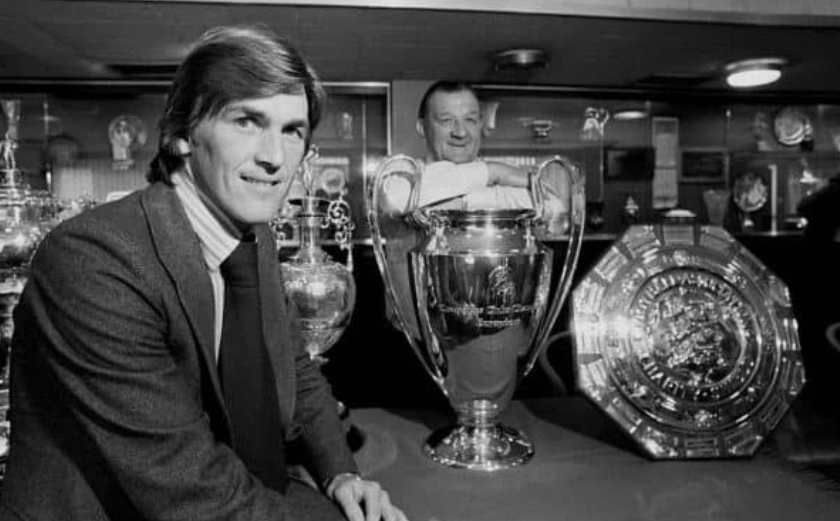
Bob Paisley and Kenny Dalglish via This Is Anfield
When Bob Paisley succeeded Shankly in 1974, few people predicted that he would surprise and surpass his predecessor’s achievements. Paisley’s passage became the most successful period in Liverpool FC’s history, turning the club into the dominant force in European football.
Under Paisley’s guidance, Liverpool won six league titles, three European Cups (76/77, 77/78 and 80/81), one Union of European Football Associations (UEFA) Cup (75/76), and three League Cups (81/82, 82/8,3 and 83/84). Bob Paisley was renowned for its tactical discipline, with players like Kenny Dalglish, Graeme Souness and Ian Rush becoming important names.
Liverpool’s first European Cup triumph in the 1976/77 season against Borussia Mönchengladbach in Rome marked a defining moment in the club’s history. The following year, under Bob Paisley’s guidance, Liverpool successfully defended their title by defeating Club Brugge, solidifying their reputation as the best football club in Europe.
By the time Paisley retired in 1983, he had amassed 14 major trophies, making him the most decorated manager in Liverpool’s illustrious history.
Kenny Dalglish Player-Manager Era (1985-1991)
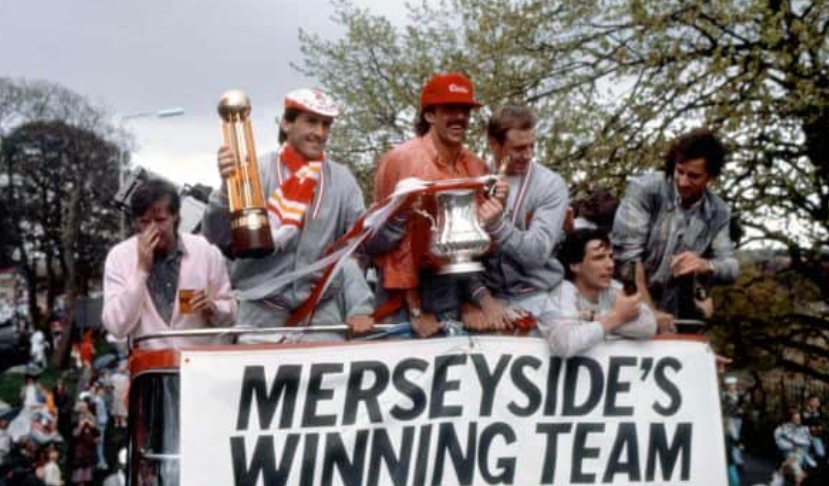
Kenny Dalglish as Liverpool coach via This Is Anfield
After Paisley’s successor, Joe Fagan, left the club following the tragic Heysel Disaster in 1985, the legendary Kenny Dalglish took over as player-manager. Dalglish, already a Liverpool icon, transitioned into management and led the club to greater heights.
Dalglish’s era was marked by domestic dominance, with Liverpool winning three First Division titles (85/86, 87/88 and 89/90) and won two FA Cups (85/86 and 88/89). His most memorable triumph came in 1986, when Liverpool secured a league and FA Cup double, defeating local rivals Everton in the FA Cup final.
Dalglish’s reign ended in 1991 following the Hillsborough Disaster in 1989, where 97 Liverpool supporters died. His leadership during that difficult period remains one of his best legacies.
Benítez Era (2004-2010)
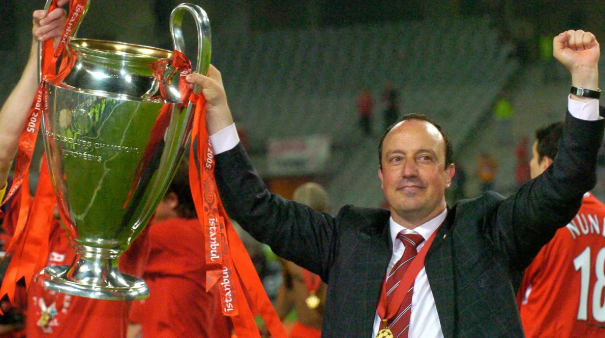
Rafa Benítez as Liverpool manager in 2005 via Eurosport
After a period of relative decline in the Premier League era, Rafa Benítez’s arrival in 2004 signaled a return to European success. Benítez rejuvenated Liverpool, leading to one of the most iconic moments in UEFA Champions League history—the Miracle of Istanbul.
In the 2005 UEFA Champions League final, Liverpool faced AC Milan and was losing 3-0 until halftime. In an amazing turnaround, Liverpool scored three goals in six minutes to force extra time, eventually winning on penalties.
Benítez also led Liverpool to victory in the 2006 FA Cup final, known as the “Gerrard Final,” after the captain’s last-minute goal forced extra time.
Iconic Players: Legends of Liverpool FC
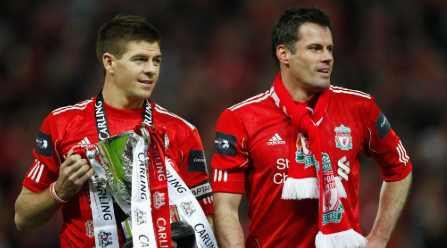
Steven Gerrard and Jamie Carragher via Sky Sports
The history of Liverpool FC is full of legendary players who were successful at the club. These players brought titles and glory to Anfield and showed the spirit of Liverpool Football Club, becoming heroes to Liverpool fans across generations.
Steven Gerrard (1998-2015)
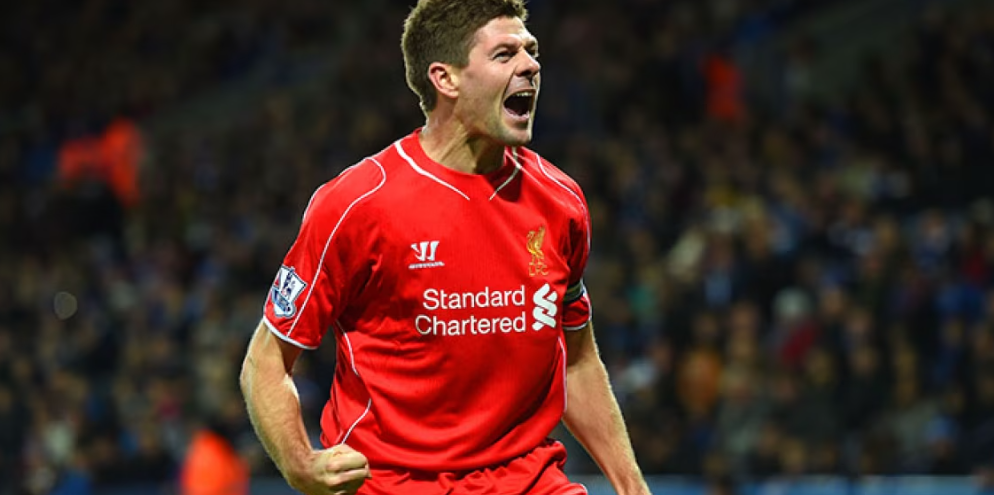
Steven Gerrard via Premier Skills English
A list of Liverpool legends would be incomplete without Gerrard’s name. Gerrard is a symbol of the club and one of his generation’s greatest midfielders. From his debut in 1998 to his departure to LA Galaxy in 2015, Gerrard was the reference to Liverpool’s greatest moments.
His unforgettable game with Liverpool was in the 2005 UEFA Champions League final in Istanbul, scoring the first goal that gave encouragement to Liverpool’s comeback against AC Milan – putting once and for all, the English player in the history of the club.
The 2006 FA Cup final, referred to as the “Gerrard Final”, saw him score twice, including a dramatic injury-time equalizer from a long distance, helping Liverpool secure the trophy.
Gerrard is a legend of Liverpool and European football. Although he never won the Premier League title, his leadership and passion with the club gave him a permanent place in the hearts of Liverpool fans.
Kenny Dalglish (1977-1990)
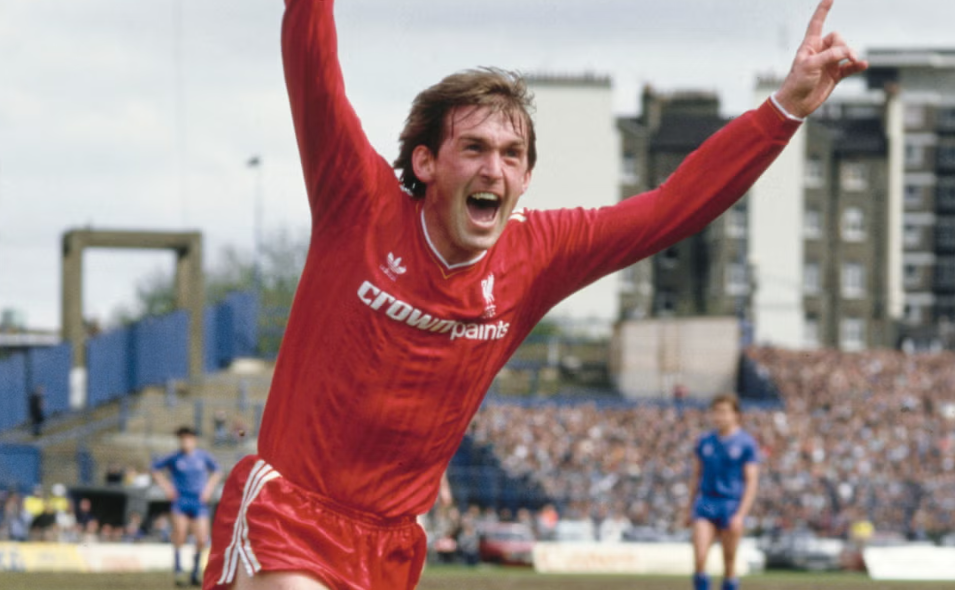
Kenny Dalglish via The Independent
Kenny Dalglish, known affectionately as “King Kenny,” is one of the most beloved players in Liverpool’s history. Signed from Celtic in 1977, Dalglish became the principal player of Liverpool’s attack during their successful period.
Dalglish helped Liverpool FC win six First Division titles, three European Cups, and more than ten domestic trophies, including FA Cup, Football League Cup and FA Charity Shield. His winning goal in the 1978 European Cup final against Club Brugge at Wembley was one of the biggest moments of his career.
As a player-manager in the late 1980s, Dalglish led the team to bigger flights, guiding Liverpool to three league titles and two FA Cups. His leadership after the Hillsborough disaster in 1989 (I’ll tell you more about it later) solidified his status. Dalglish remains an important figure in Liverpool’s success and one of the greatest to ever wear the red jersey.
Ian Rush (1980-1987)
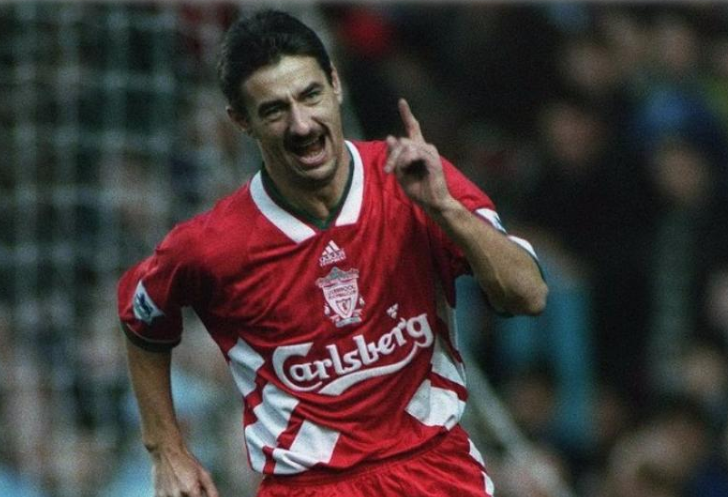
Ian Rush via Offaly Express
Ian Rush is Liverpool’s all-time leading goal scorer, with 346 goals in competitive matches. Known for his finishing and intelligent movement, Rush was the genius of Liverpool’s attack throughout the 1980s and early 90s.
Rush’s goals were crucial in Liverpool’s dominance of English football, including five league titles, three FA Cups and two European Cups during his legacy.
His partnership with Kenny Dalglish was legendary, and their telepathic understanding helped Liverpool secure a lot of titles.
Rush was important in key matches, including scoring twice in the 1986 FA Cup final against Everton, solidifying his place as a Liverpool icon. Even after a brief passage at Juventus, Rush returned to Anfield, continuing to score and growing his legendary status.
John Barnes
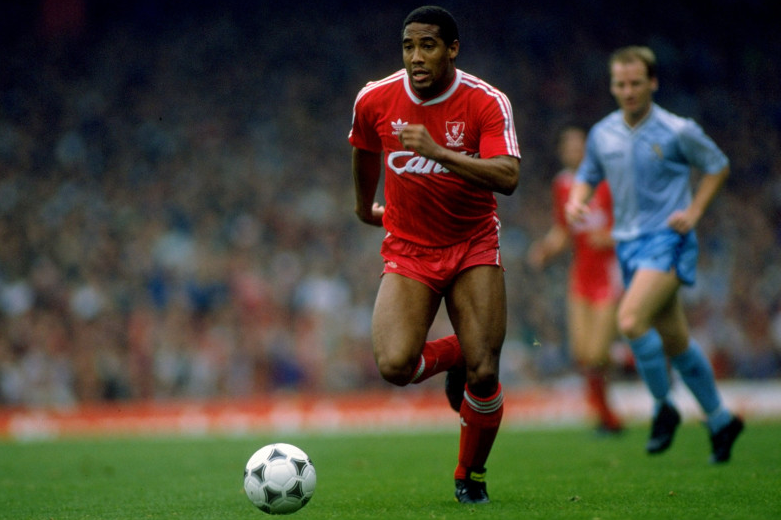
John Barnes via Bleacher Report
The signing of John Barnes from Watford in 1987 brought a wave of creativity and dynamism to Liverpool. His exciting abilities made him a spectacle in English football during the late 1980s.
Barnes was important in Liverpool’s First Division titles victories in 1988 and 1990, contributing with goals, assists and amazing performances on the left wing. Barnes scored fifteen goals in his first season as Liverpool’s player and remained undefeated for the first twenty-nine first games of the season.
His impact extended beyond the pitch, as he broke racial barriers in English football and became a model for future generations.
Jamie Carragher (1996-2013)
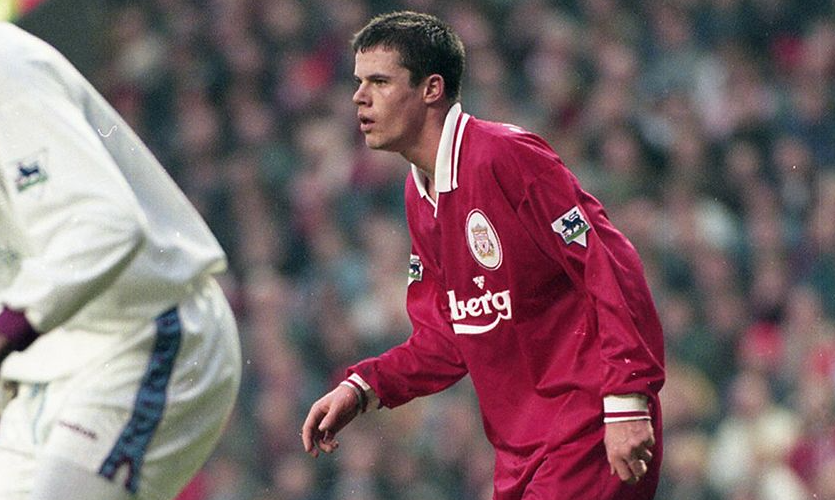
Jamie Carragher via Liverpool FC
A true legend of Liverpool FC, Jamie Carragher was the meaning of loyalty. Carragher spent his entire career at Liverpool, with over 700 appearances, and became the leader of the defense for more than a decade.
Carragher’s leadership and commitment were crucial throughout his career at Liverpool, especially in one triumph: the 2005 UEFA Champions League final. His two defensive heroics in extra time helped secure the tie and then win to AC Milan.
His loyalty to the club and connection with the Liverpool fans make him one of the most respected players in Liverpool’s history.
Fernando Torres (2007-2011)
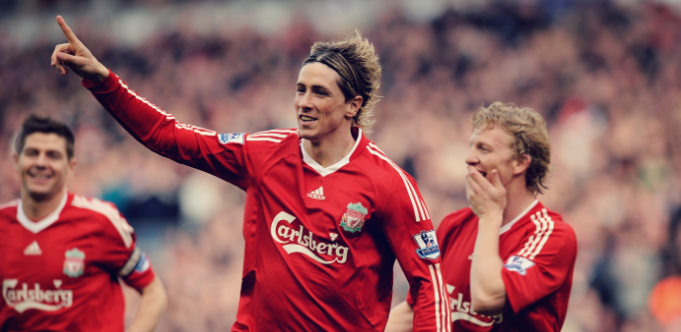
Fernando Torres via These Football Times
Though his stay at Anfield was relatively short, Fernando Torres left a giant mark. Signed from Atlético Madrid in 2007, Torres’ pace, finishing, and ability in big matches made him a hero to the Liverpool supporters.
In his first season, Torres scored 24 Premier League goals, becoming the first Liverpool player since Robbie Fowler to break the 20-goal barrier in a league campaign. His partnership with Steven Gerrard was super dangerous during the Premier League and other competitions.
Torres joined Chelsea in 2011 and played there until 2014. In the 2014/15 season, he was loaned to Milan. The following season, he went back to Atlético Madrid and later on, he moved to Japan to play for Sagan Tosu, where he scored 5 goals in 35 games. On 21 June 2019, Torres announced his retirement from football.
These players, among many others, have shaped the history of Liverpool FC. From Kenny Dalglish to Steven Gerrard, Michael Owen and most recently Mohamed Salah, the legends of Liverpool are remembered for the titles they won and the passion and pride they brought to the club.
Tragedies in Liverpool Games
The history of Liverpool FC includes glorious victories and legendary players, but also moments of profound tragedy that forever changed the club and strengthened the bond between fans and the team. Two major disasters stand out: the Heysel disaster in 1985 and the Hillsborough disaster in 1989.
The Heysel Disaster (1985)
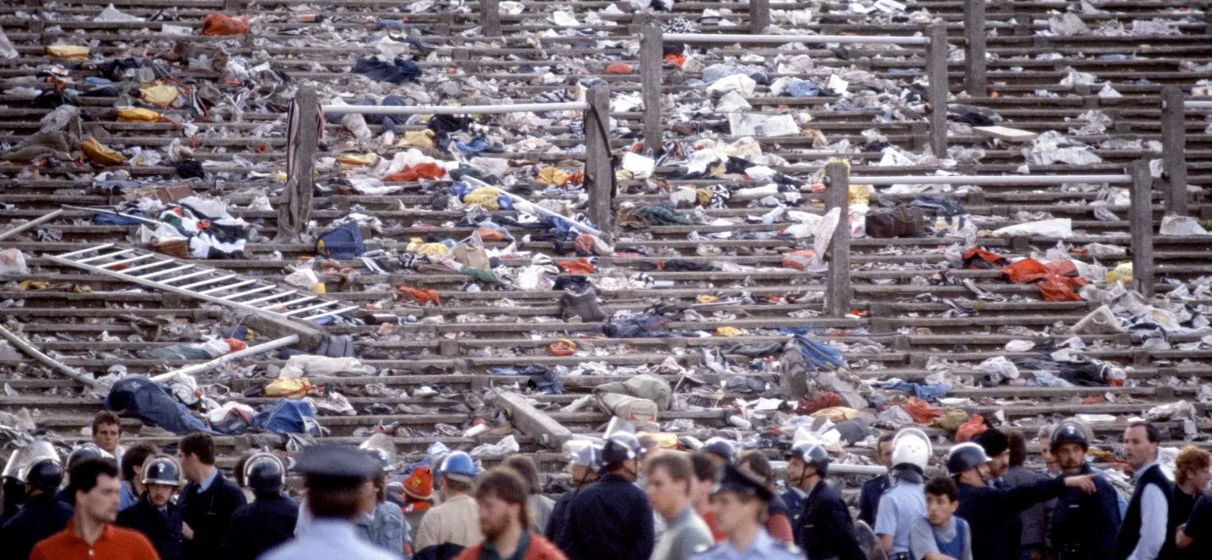
Heysel Stadium in Brussels in 1985 via GQ Magazine
The Heysel disaster occurred during the European Cup final between Liverpool and Juventus at the Heysel Stadium in Brussels. Just before the kickoff, tensions between Liverpool fans and Juventus supporters increased, resulting in a collapse of a wall that led to the deaths of 39 people, most of them Juventus fans.
The tragic incident resulted in English clubs being banned from European competitions for five years.
For Liverpool, the Heysel disaster haunted the club for a long time over the club’s success in the 1980s. Liverpool took responsibility and faced immense pressure from governing bodies and the public. This event served as a turning point, promoting significant changes in stadium safety and fan management across Europe.
In April 1991, the UEFA’s Executive Committee voted to allow Liverpool back into European competitions. Liverpool returned two years before its ban but a year later than their compatriots.
The Hillsborough Disaster (1989)
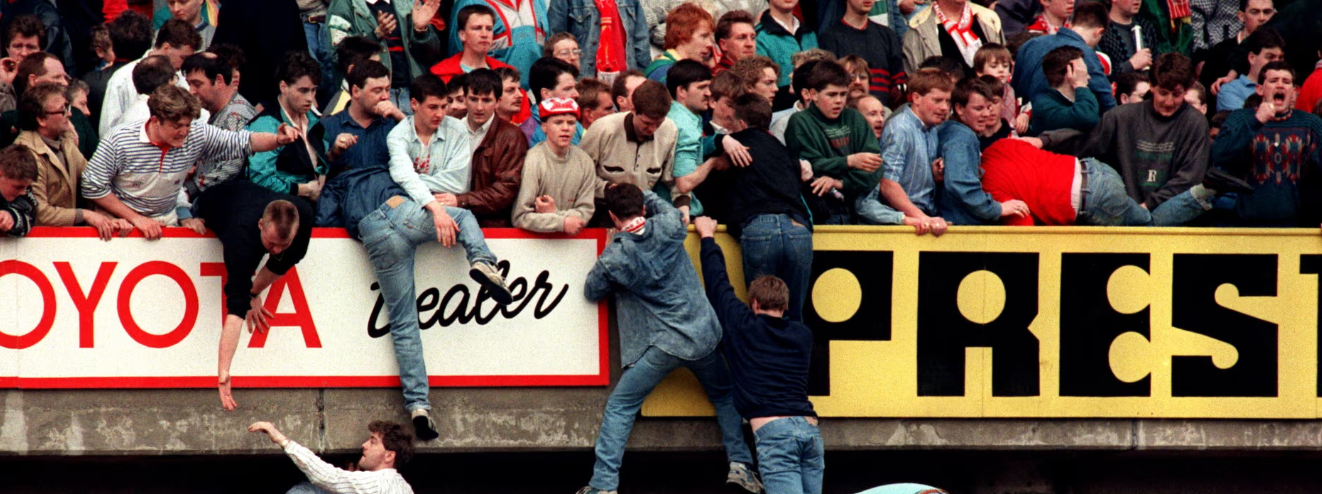
Hillsborough Stadium via The Guardian
The Hillsborough disaster is one of the darkest moments in the history of Liverpool Football Club and English football. During the FA Cup semi-finals against Nottingham Forest at Hillsborough Stadium, overcrowding in the stands led to a catastrophic crush that claimed the lives of 97 Liverpool fans.
That tragedy happened in front of thousands of Liverpool supporters, leaving a giant scar on the club and the city of Liverpool.
In the sequence, the club saw a long battle for justice led by Liverpool supporters and the victim’s families, culminating in a decision in 2016 that the victims were unlawfully killed due to police negligence.
Each year, Anfield Stadium honors the memory of those lost tributes and moments of silence, ensuring that the Hillsborough 97 is never forgotten.
European Triumphs
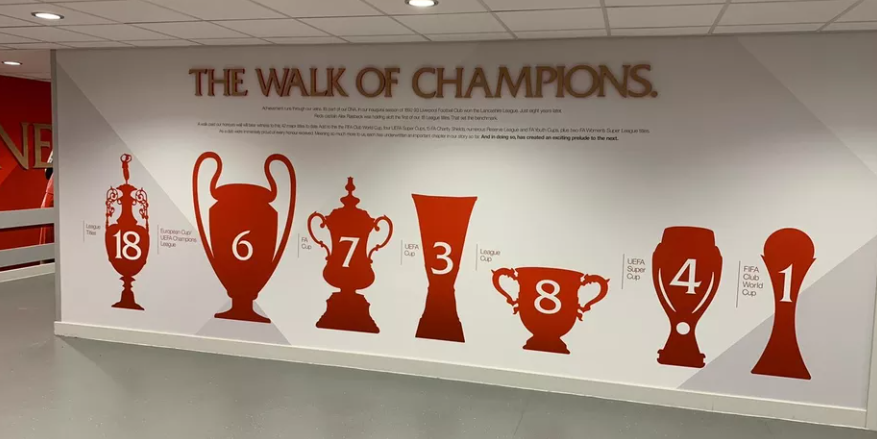
The Walk of Champions in 2019 via Globo Esporte
Liverpool FC is synonymous with success in European football, establishing itself as one of the most successful British clubs in European competitions. From the golden days of Bob Paisley to the magic under Jürgen Klopp and now Arne Slot, Liverpool’s European triumphs have created the club’s status as a powerhouse.
Three European Cups Under Bob Paisley (1977, 1978 and 1981)
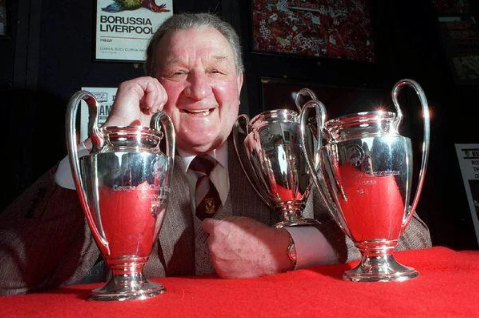
Bob Paisley with trophies via Reddit
Under Bob Paisley, Liverpool entered a period of great success in Europe, winning the European Cup three times between 1977 and 1981. The 1977 victory over Borussia Mönchengladbach marked Liverpool’s first European Cup, followed by another triumph in 1978 against Club Brugge at Wembley.
In 1981, Liverpool claimed their third European Cup title after defeating Real Madrid. This era established Liverpool as the dominant force in European football and a reference for future generations.
The Miracle of Istanbul (2005)
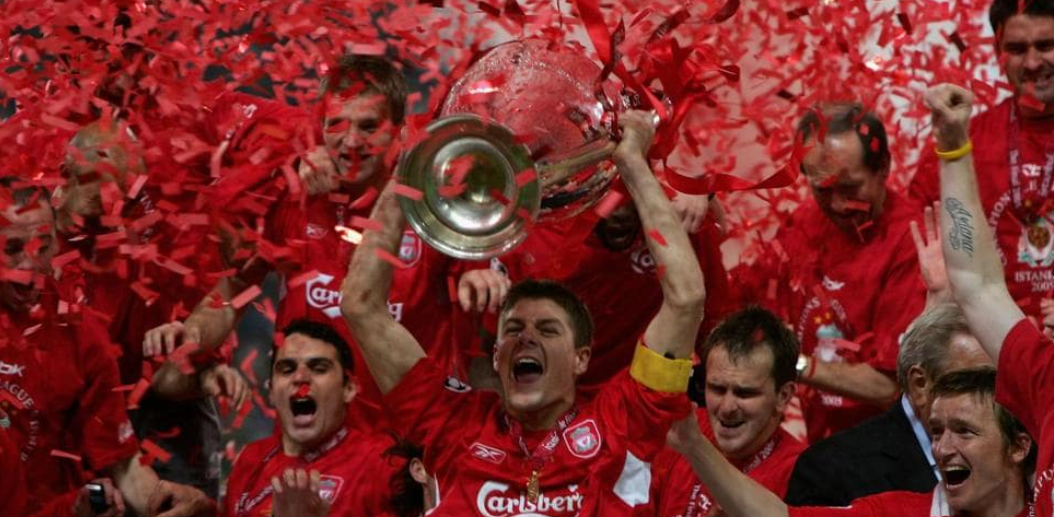
Liverpool lifting UCL trophy in 2005 via UEFA
One of the most iconic nights in Liverpool’s history was the 2005 UEFA Champions League final against AC Milan in Istanbul. After losing 3-0 at halftime, Liverpool made an extraordinary comeback, scoring three goals in six minutes to force extra time.
The goalkeeper Jerzy Dudek was heroic in the penalty shootout, ensuring the club’s fifth European Cup. The game is considered by the Liverpool fans as one of the greatest matches in European football history.
Sixth European Cup (or Champions League) in 2019
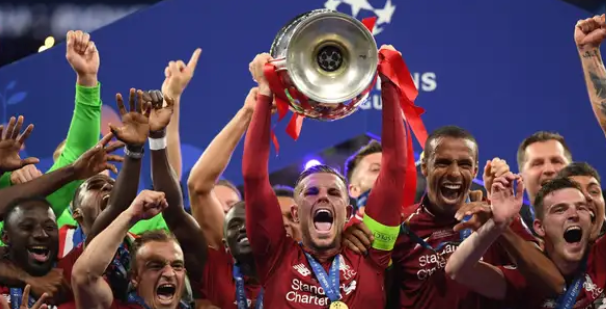
Jordan Henderson lifting the UCL trophy in 2019 via Goal
After several losses in the Premier League and UEFA Champions League, Liverpool returned to success again in 2019 under Jürgen Klopp. The Champions League final in the Metropolitano Stadium in Madrid, Spain, saw Liverpool defeat Tottenham Hotspur 2-0, with goals from Mohamed Salah and Divock Origi.
This victory marked the sixth European Cup title for Liverpool, resuming their position on the European stage.
Rebuilding and Premier League Era
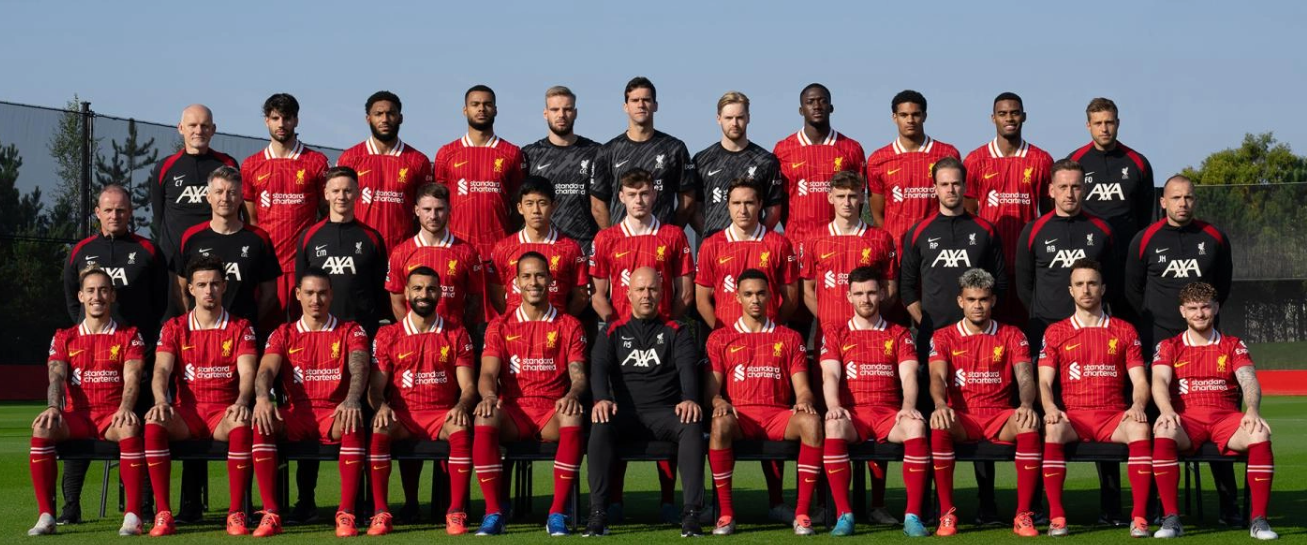
2024/25 Liverpool squad via Liverpool FC
The transition from the golden days of the First Division to the modern Premier League era wasn’t without its challenges for Liverpool FC. As English football evolved, Liverpool faced competition from powerhouses of England like Arsenal, Chelsea, Manchester United, Manchester City and Tottenham Hotspur. Despite this, the club continued rebuilding and preparing for future success.
Liverpool FC remained competitive throughout the 1990s and early 2000s under the leadership of managers Roy Evans, Gérard Houllier, and Rafa Benítez. The team secured victories in two FA Cups and two League Cups. Notably, they achieved an unforgettable triumph in the 2005 UEFA Champions League final in Istanbul. Despite these successes, the Premier League title continued to elude them.
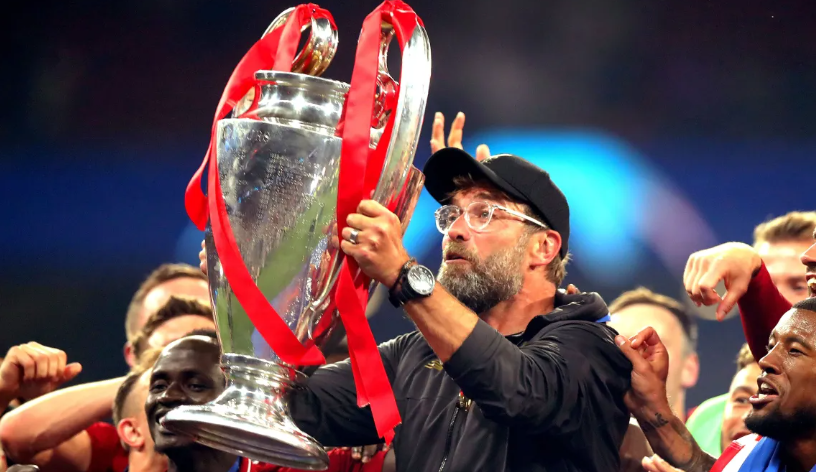
Jürgen Klopp lifting the 2018/19 UCL Trophy via CNN
The turning point came with Jürgen Klopp in 2015. When the manager arrived in Anfield, he brought a new vision, reforming the club into a dominant force.
Klopp mixed experienced leaders like Jordan Henderson and Virgil van Dijk with attacking stars like Mohamed Salah, Sadio Mané and Roberto Firmino.
The long-awaited league championship title finally came in 2020, when Liverpool secured their first Premier League title, breaking a 30-year drought.

Liverpool fans at Anfield Stadium via SportBuzz
Today, Liverpool is a giant in England and in world football. The club can compete at the highest level in English football and European competitions.
For Liverpool fans and supporters, the club represents more than just a team – it’s a way of life.
Become a Giant in Football with FootballTeam Game
If you’ve made it this far, chances are you’re a big football fan, right?
If you’re passionate about football and want to be the best player ever, I have good news: FootballTeam is the perfect game for you!
This game is your gateway to show off your football knowledge while building your dream team or stadium. Challenge friends and players globally in an immersive football experience like no other!
FootballTeam is available on desktop and mobile devices, ensuring a seamless experience wherever you are. Sign up now and play for free!